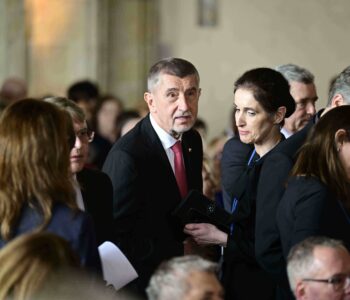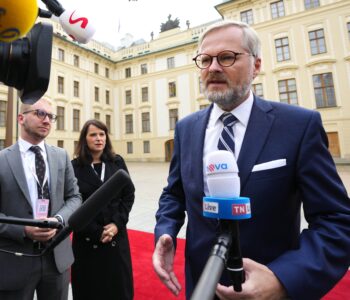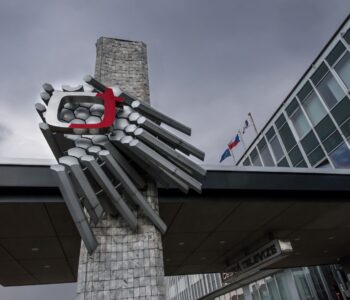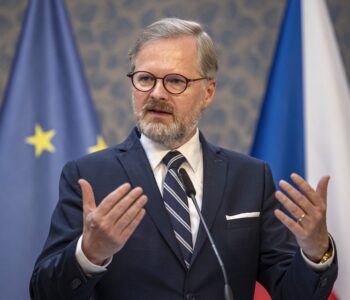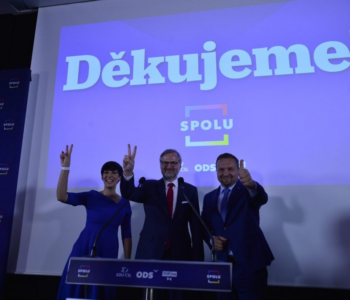In October 2021, a new Czech government was elected amid promises to shore up democracy by fighting disinformation and strengthening public media. But one year into its term and with a key media legislation yet to be passed, there are calls for greater urgency in the ongoing reform process.
Critics admit that Prime Minister Petr Fiala’s governing coalition has had plenty on its plate since taking power during the tail end of the Covid pandemic. Russia’s brutal invasion of Ukraine soon unleashed a wave of refugees, and energy and inflation crunches have followed. But at the same time, they contend that these crises make action all the more urgent.
The worry is that, having leveraged the threat stalking the media environment to help depose populist billionaire Andrej Babis a year ago, the five-party coalition is struggling to maintain the enthusiasm of all factions for the plan to protect the free press. However, there are signs that the role of disinformation networks in driving recent anti-government rallies may help to revive the effort.
“Pensioner’s Facebook”
With a population highly sceptical of the political establishment, the Czech Republic has proved fertile ground for the development of disinformation networks.
Ironically, it’s the relative health of the media landscape that has encouraged the growth of “alternative” networks, says Vaclav Stetka, senior lecturer in Communication and Media Studies at Loughborough University.
Elsewhere in the region, disinformation can find its way through mainstream media. In Czechia, it must find alternative channels, often fairly unique, he says.
“Chain emails have become something of a speciality,” he notes, pointing at research by The Illiberal Turn project that shows that this format enjoys far deeper penetration than in neighbouring states.
The “pensioner’s Facebook,” as these email networks have been dubbed, was instrumental in mass protests in September. Claims that sanctions against Russia and support for Ukrainian refugees are preventing the government from offering more help amid the energy and inflation crises helped put an estimated 70,000 on Prague’s Wenceslas Square.
The turnout was a surprise, in no small part because the networks used to set the protest up are largely hidden, says investigative journalist Lukas Valasek. The pro-Russian agenda put forward by the organisers – veterans of the anti-vax movement – was a shock.
These unexpected developments seem to have helped jolt the government into action, agrees Dominik Presl, a member of a team being assembled by the commissioner for media and disinformation that Fiala appointed in March. In the wake of the protests, government and security officials have been busy warning of the dangers.
“Russian disinformation is an effective means to try to weaken our democracy, as we saw in the streets last month,” Markéta Pekarová Adamová, head of the Top09 coalition party and parliament speaker, told IPI.
Alongside the rhetoric, the interior ministry is reportedly set to deliver a bill this month aimed at laying down a legislative framework that will allow the authorities to block websites considered a security risk. While the legislation is still being crafted, currently it would allow the interior ministry to order internet providers to restrict access to website content that threatens security or democracy. The ministry stresses that the bill is not aimed at halting the publication of disinformation per se, although measures to supress the spread of fake news are being developed separately.
An option to hand the oversight to an independent body is being left open to assuage worries regarding abuse by the government. Websites targeted would be able to challenge the action in court and seek compensation.
Talking the walk
Researchers say, however, that such headline-grabbing restrictive tools need to be matched with more strategic measures. And one of the prime weapons is a strong and independent public media. A bastion of independent journalism in Central & Eastern Europe, Česká televize (Czech Television; CT) has faced assault from political forces jealous of its nonalignment for decades.
The broadcaster came under sustained pressure during Babis’s reign, as populist forces sought to wrest control of its executive body, the CT Council. Then in opposition, the parties now making up the government, fought hard to hold off the assault. It was this fight as much as anything that prompted Fiala’s campaign promises. But the momentum in carrying them out has slowed.
“The promise to strengthen the resilience and independence of public media was key, especially after accusing Babis of being a threat,” points out Stetka. “But up to now it seems it was more talk than walk. The effort and the results have been disappointing.”
Progress towards this goal now looks to finally be on the way, with a package of reforms regarding appointments to the CT Council on the cards. As overseer of the broadcaster’s management, and therefore its editorial independence, many have sought to stuff the executive board with political lackeys in the past.
The proposed new measures would aim to prevent that by allowing the upper house Senate to join the lower house Chamber of Deputies in appointing the council, which would be expanded by three seats to eighteen. New rules would also govern who could propose candidates and how the executive could discipline management.
“The goal is to avoid the Polish or Hungarian route, where the current governments have taken over the public service media and completely subjugated them,” says one of the sponsors, Jan Lacina
The bill has been awaiting a hearing in parliament for months. It was finally introduced to the Chamber of Deputies for initial debate on October 13, with Lacina insisting that the government was prepared for a “big battle”.
The effort quickly turned to farce. With Fiala absent from the chamber, the opposition blocked the proceedings. It is understood that the bill should be ready to be voted on again on November 1.
A spokesperson for the ministry of culture told IPI that “we believe the amendment will enter into force at the beginning of 2023”.
On a leash
However, even if the bill is passed and the changes are made, the long-term future of the country’s public service media remains under question.
While the CT Council reform should help protect the broadcaster, it will remain under political pressure unless its perilous financial situation is solved. And Fiala’s government has ruled out dealing with the chronic underfunding at CT and its public broadcasting cousin Český rozhlas (Czech Radio) by raising the licence fees that feed their finances.
The annual fee for CT was last raised in 2008, to CZK135 (€5.48) per household. The fee for Český rozhlas has sat at CZK45 since 2005. Both broadcasters have long warned that this leaves them unable to maintain all services. And the inflation surge is only antagonising the situation.
However, Minister of Culture Martin Baxa insists that, amid the cost-of-living crisis, the government cannot propose even a minor increase. “It’s difficult to tell people that fifteen or twenty crowns is nothing for them,” he said last month, even though vulnerable households are exempt from paying.
The lack of funding threatens to leave the two public broadcasters dependent on the government, and is therefore a serious risk to independence, watchdogs warn. Stetka calls it “a means of keeping public service media on a leash”.
Others insist that it reflects an unwillingness on the part of some government factions to lose control of public media.
“It’s an open secret that the conservative wing of Fiala’s ODS party has little time for public media independence,” said one journalist, who’s close to the topic, off record. “They have no intention of handing the country’s main TV broadcaster free reign.”
The country’s illiberal forces are just as opposed to allowing CT its financial freedom. And in the absence of action to protect the broadcaster, MPs from ANO and SPD are proposing that all pensioners be made exempt from paying fees.
“It’s another … attempt to starve the public media and … push them to future dependence on the state budget – de facto to nationalization and easy control and service of political interests,” states Robert Břešťan, editor at independent media outlet HlídacíPes.
The culture ministry is discussing options regarding the “sustainability of public media,” the spokesperson said, but noted that “increasing fees is not on the agenda”.
Alongside the failure to so far put in place a cohesive strategy for fighting disinformation or to reform the oversight of public media, that appears to leave Fiala’s promises of media reform still needing a shot in the arm.
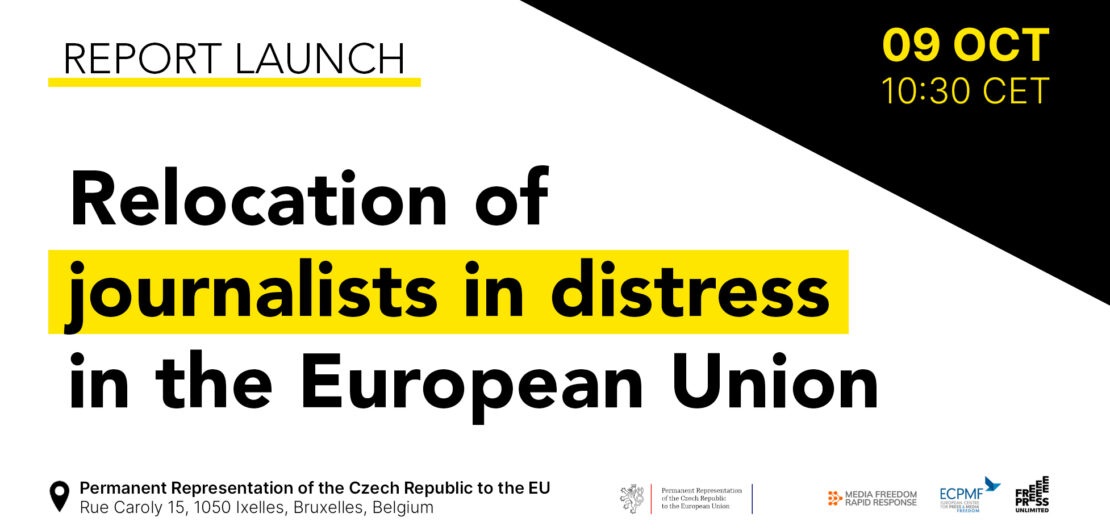 Library
Library

